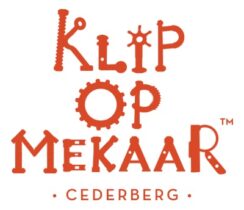First Carbon Net-Negative Rooibos Producer / Supplier
In April 2024, Klipopmekaar became the first carbon net-negative rooibos producer/supplier within the entire rooibos industry (to the best of our knowledge).
We’re very proud of this achievement, as it means that our organic, no-till, and regenerative agriculture endeavours over the past 10+ years have successfully trapped thousands of tons of soil carbon annually, whilst our GHG (greenhouse gas) emissions (cradle to gate and gate to gate/client) are in the low hundreds of tons.
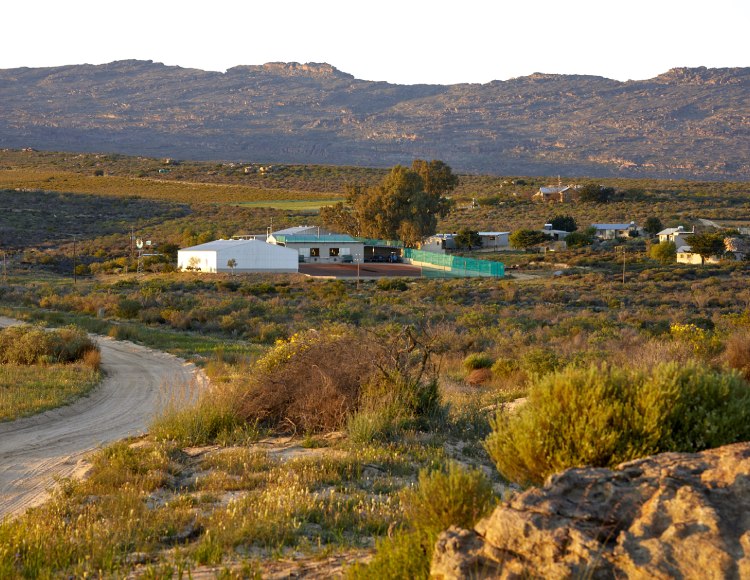
Carbon Net-Zero Organic Rooibos delivered to Client Warehouse / Port
For our valued clients, our third party verified assessment means that when you buy rooibos from us, it arrives as carbon net-zero (aka 'carbon neutral') at your local warehouse or destination port.
And this is an important environmental and GHG emissions reduction benefit that can be communicated within your organisation and to your consumers.
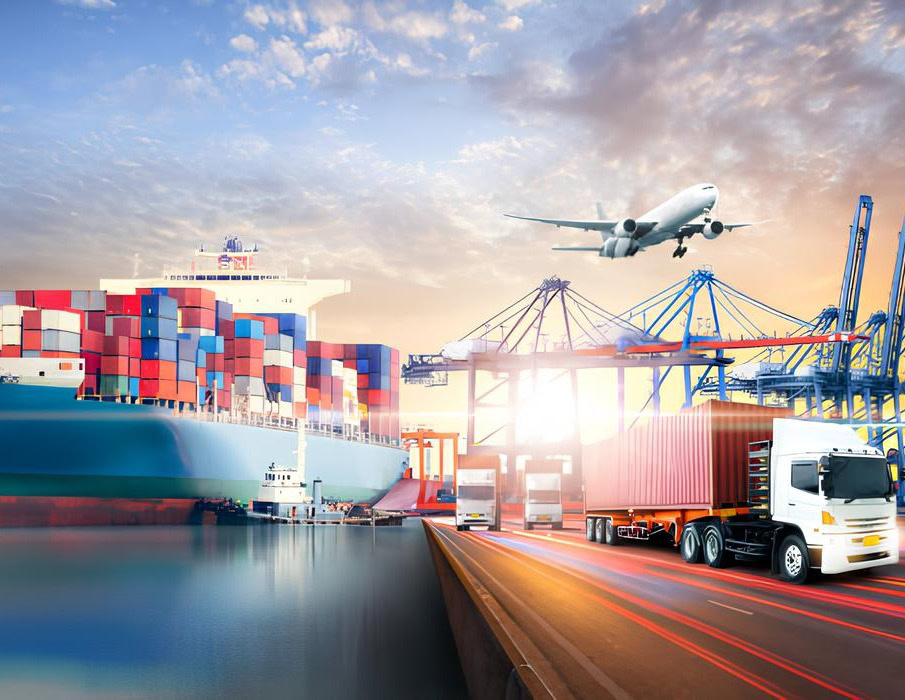
Independent Audit & Verification
Klipopmekaar’s carbon net-zero assessment aligns with science-based targets initiatives. The assessment has had independent third-party verification by an expert professional company with over 15 years’ global experience specialising in sustainability consulting, life cycle assessments, GHG inventories and GHG/LCA assurances. The assessment report and third-party verification are provided to clients upon request.
- Verification standard: ISO 14064-3:2019
- Verification criteria: WRI/WBCSD Greenhouse Gas Protocol’s Product Life Cycle Accounting
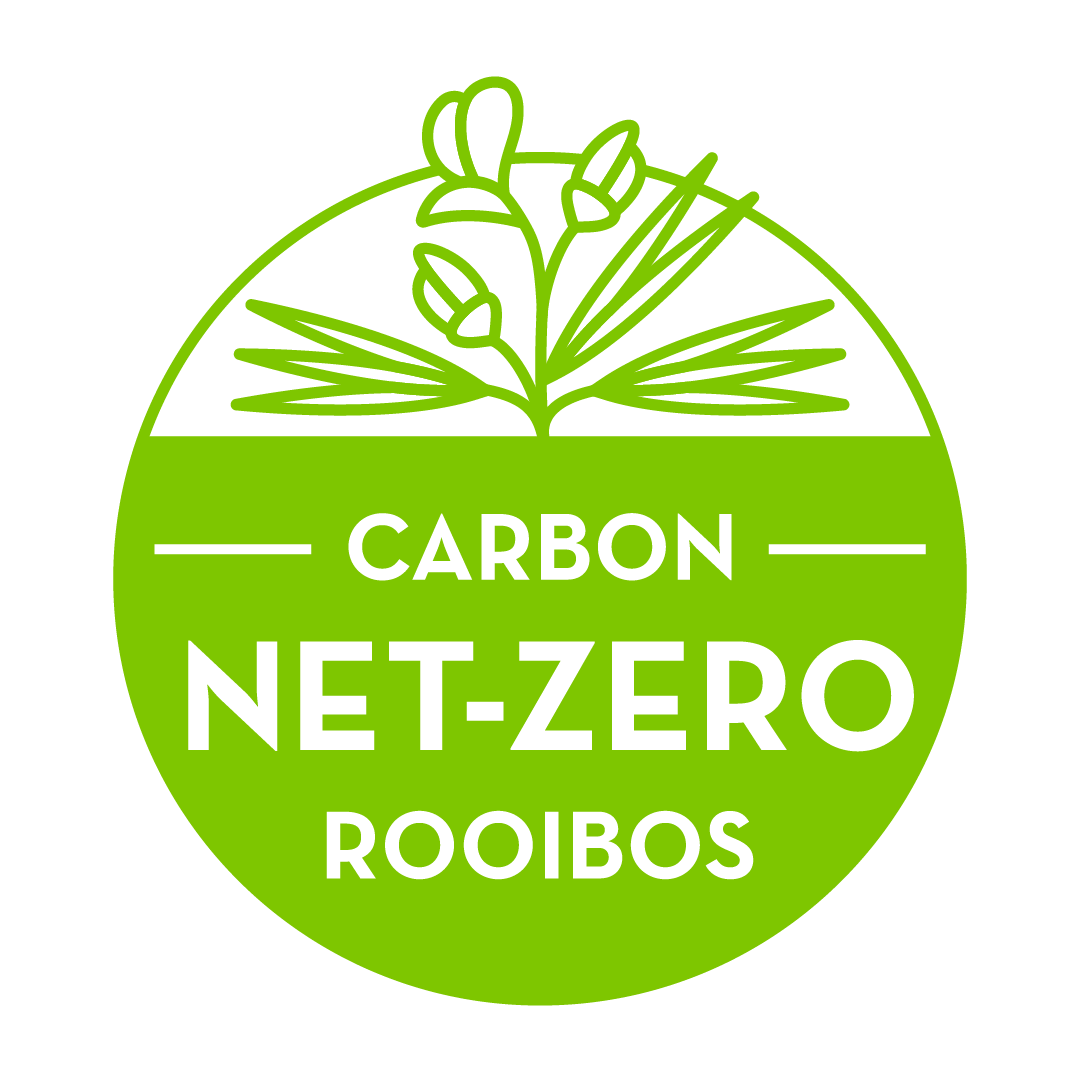
Our Carbon Net-Negative Journey
We’ve always strived to work in harmony with nature. Since 2007 our journey toward regenerative farming started with organic certification and has developed over the years to include a holistic application of these principles. By minimising living soil disturbance, building up organic material (carbon), and replenishing nutrients removed by harvesting our rooibos, we have created stable, well-structured, living soils.
The principles involved in regenerative farming have meant that we’ve closely monitored/tracked the amount of soil carbon stored in our fields. Through the application of supplementary solar-powered drip irrigation (an area in which we are a leader in our industry) and a considered approach to multi-seed cover/rotation crops, mulching, composting, no-till farming, and regenerative agriculture, we’ve seen a steady improvement in soil carbon, living soil health, and soil nutrient levels … while simultaneously increasing our farm yields.

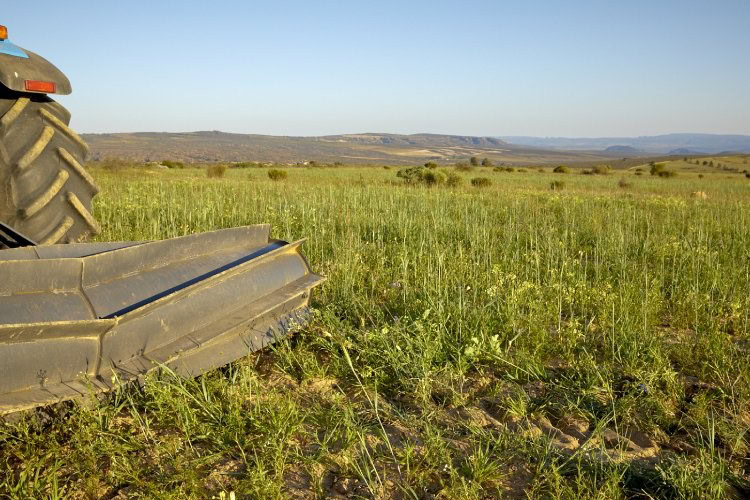
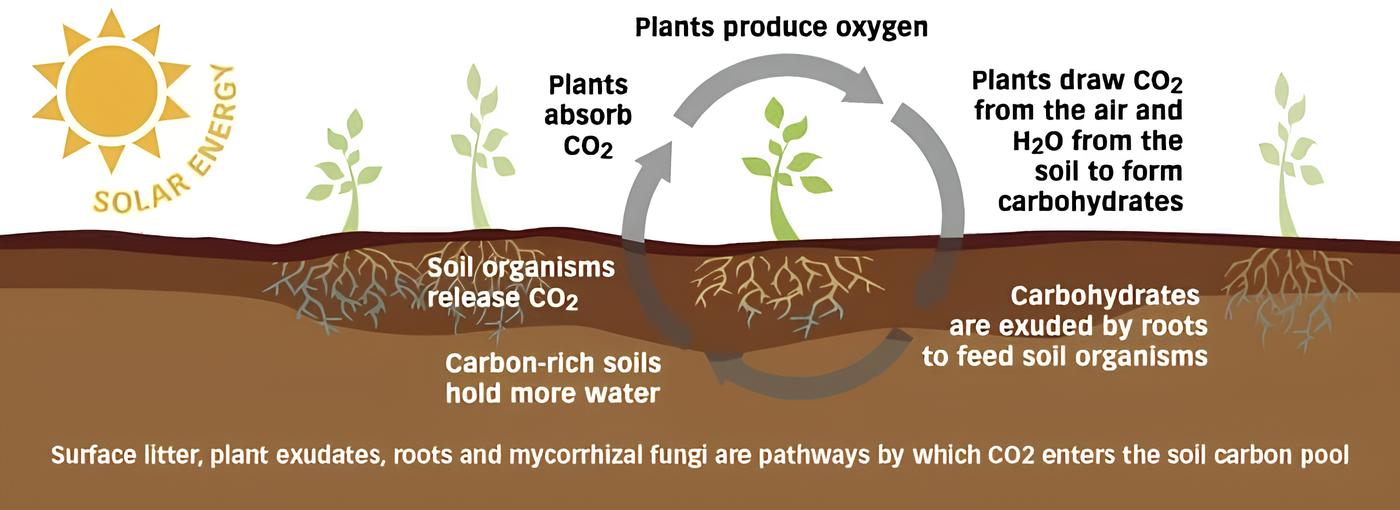
These improvements have been captured/recorded through the regular monitoring of soil samples scientifically taken annually on a GPS-point grid across our farm.
The results of years of application of our evolving knowledge is that we achieved a carbon net-negative balance through the storage of more vastly more (tenfold) CO2e in our soils than that emitted from the farming, primary processing, downstream secondary processing (including pasteurisation), packing, transporting/shipping of our bulk-packed organic rooibos to clients’ destination ports worldwide.
Due to the very substantial amount of carbon stored in the soil, Klipopmekaar is theoretically positioned to supply carbon net-zero rooibos to clients for the next 80 years (assuming similar GHG emissions each year and current soil carbon levels remain stable).
The bottom line is that tea brands who source from Klipopmekaar, can rely on receiving carbon net-zero rooibos for decades to come.
Carbon net zero rooibos and carbon-neutral rooibos can largely be regarded as the same thing, but there are differences in meaning. To find out more about carbon terminology, and why tea brands and suppliers should move to planet-positive suppliers, read our ‘Carbon Net-Zero Rooibos: The Sustainable Choice for Tea Brands‘ article.
